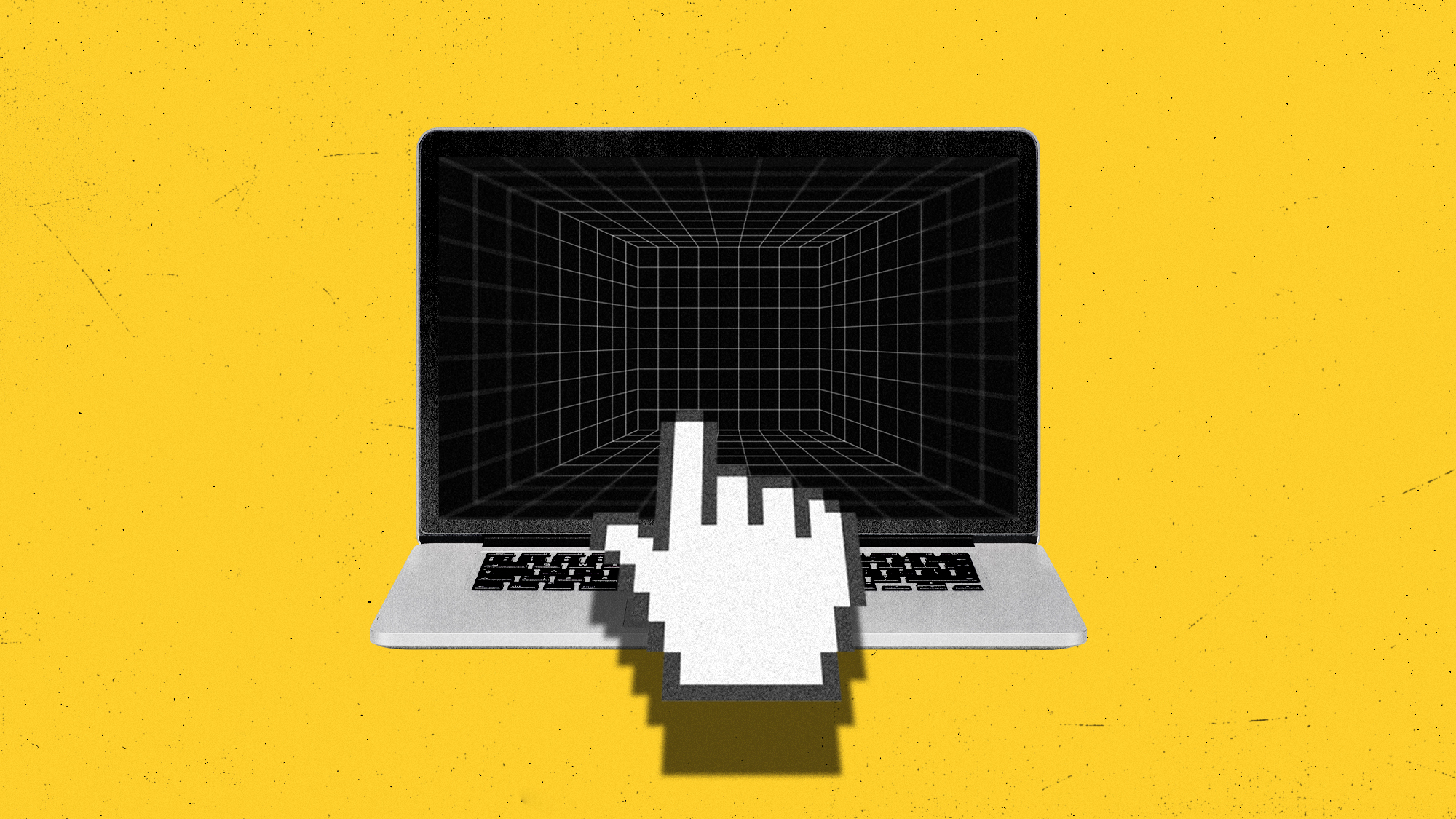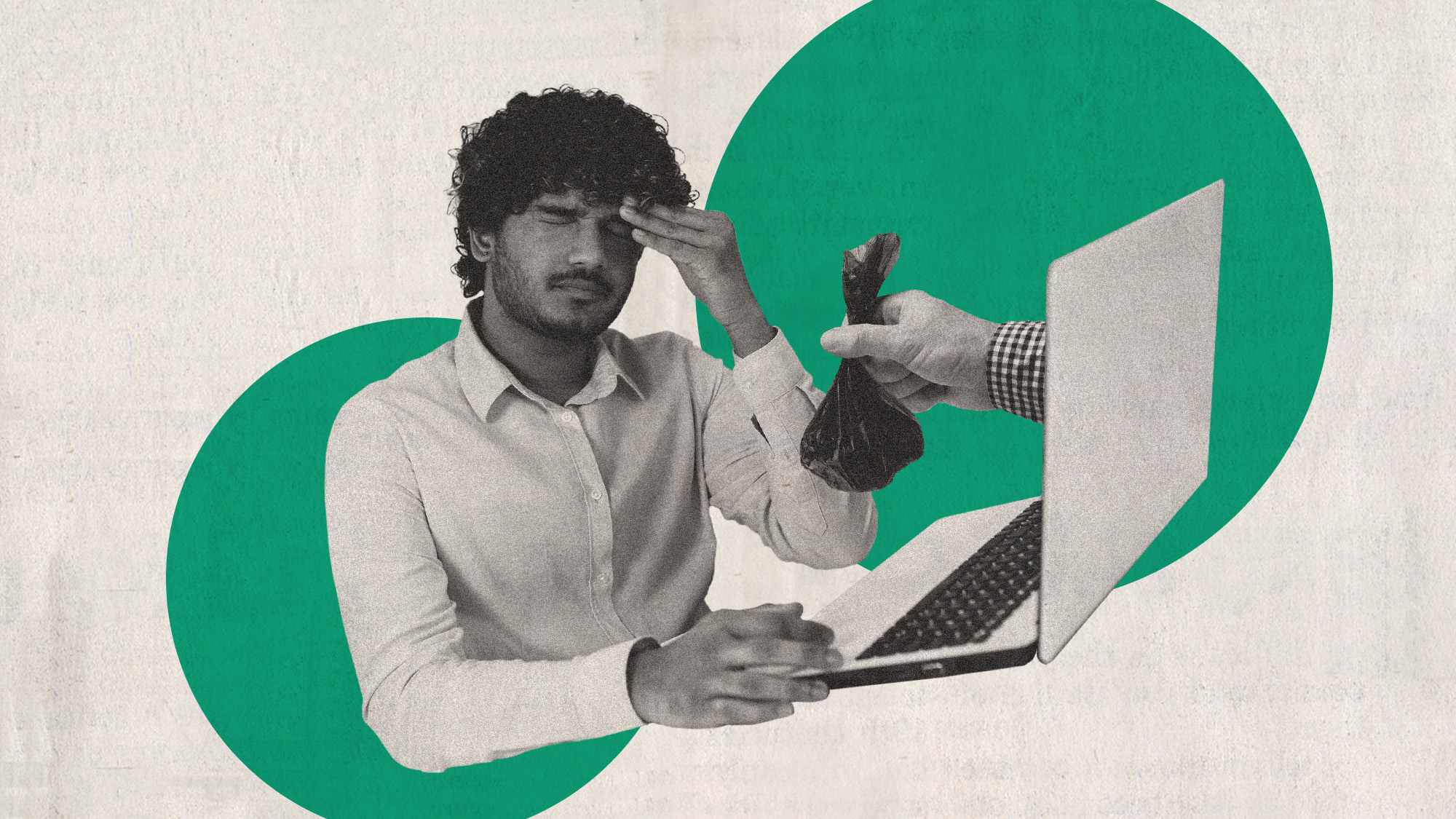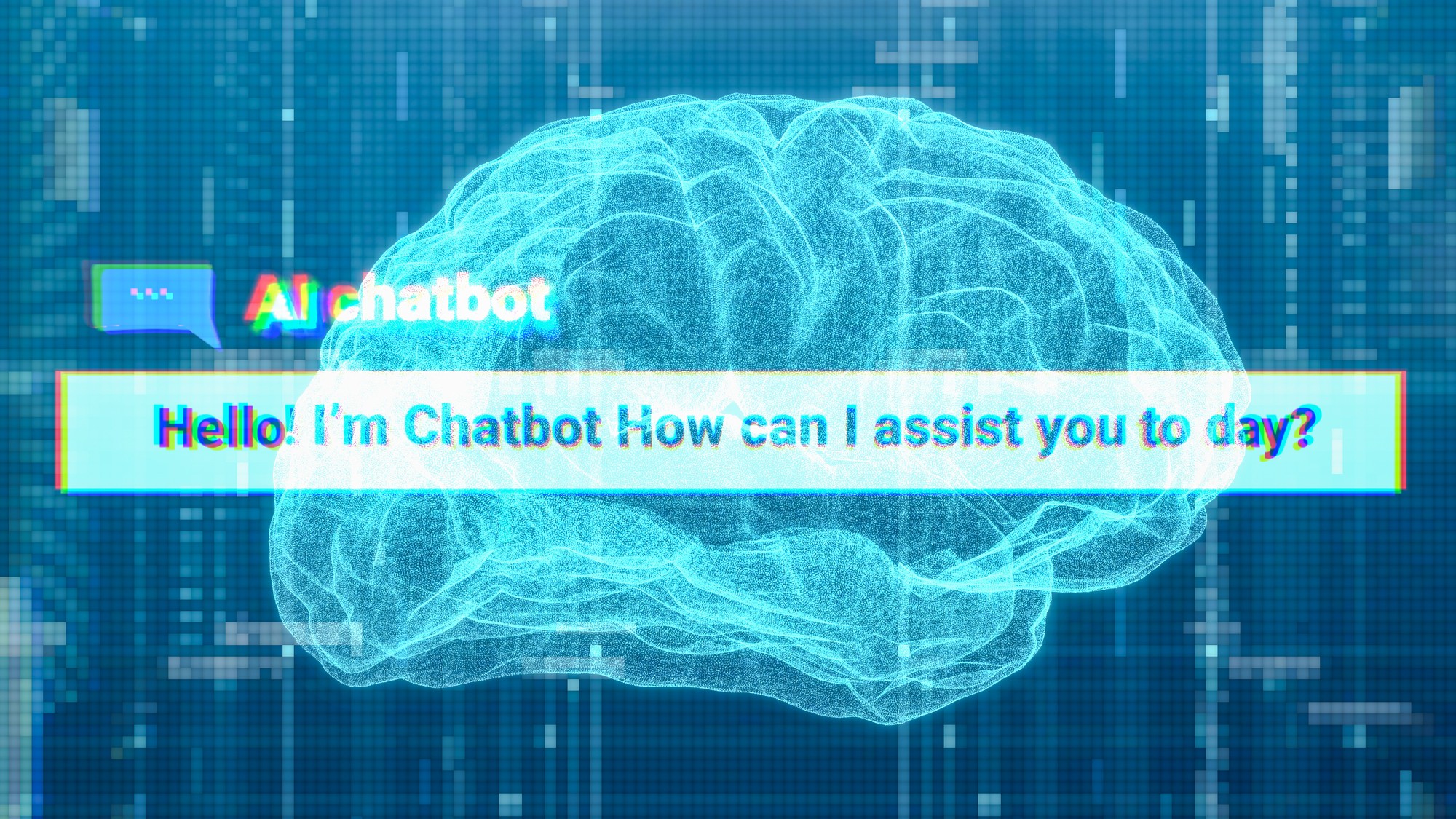Inside the dark web: could it be shut down?
The 'shrouded alleyway of the internet' is a haven for activists as well as for illicit activity

The debate surrounding children's access to the dark web is intensifying in the wake of Brianna Ghey's murder.
One of Ghey's teenaged killers, Scarlett Jenkinson, admitted in court to having watched a "mixture of violent stuff, including murder and torture", after downloading an anonymous browser called Tor to access the dark web when she was 14.
The dark web has a "notorious reputation for hosting illegal activities such as drug trafficking, weapons sales and human trafficking", said Jumpstart Magazine. But like almost all technologies, it is a mixture of "good, bad and ugly sides", with positives including providing a "haven" for journalists, activists and others "seeking anonymity for legitimate reasons".
The Week
Escape your echo chamber. Get the facts behind the news, plus analysis from multiple perspectives.

Sign up for The Week's Free Newsletters
From our morning news briefing to a weekly Good News Newsletter, get the best of The Week delivered directly to your inbox.
From our morning news briefing to a weekly Good News Newsletter, get the best of The Week delivered directly to your inbox.
What is the dark web and why is it dangerous?
Also known as the dark net, the dark web is "essentially the name given to all the hidden places on the internet", said Daniel Prince, a professor in security science at Lancaster University, on The Conversation. It cannot be accessed by traditional search engines such as Google and "prevents people from knowing who you are, what you are doing and where you are doing it".
One of the more common methods of tapping into what The Sun called the "shrouded alleyway of the internet" is anonymous web browser Tor, which hosts roughly 30,000 hidden sites. An acronym for The Onion Router, it was developed by the US military in the mid-1990s to allow spies to exchange information and uses multiple layers of encryption – which converts data into code that can only be read by the sender and authorised receiver.
Although Tor is legal to use in the UK and US, this "relatively small segment of the vast web has become infamous as a hotbed of illegal trade", said the London Evening Standard. Most of the illicit activity takes place in so-called "darknet" marketplaces, "where anonymous users buy and sell everything from guns to drugs to child pornography using crypto-currency".
Earlier this month, a British car mechanic who had a "secret life" as a moderator of a "horrific" child abuse site called The Annex was jailed for 16 years, said The Independent. Another man was sentenced to life in prison in the US in January for overseeing the now-defunct site, which had around 90,000 global users and lay behind a "gateway" accessed through Tor.
A free daily email with the biggest news stories of the day – and the best features from TheWeek.com
The dark web has also become a "home for political extremism activity", said the i news site, with sites that host propaganda material, and forums where violence against politicians is sometimes discussed.
Should and can it be banned?
Despite often hosting criminal content, the dark web "isn't inherently bad", said The Sun. Monitoring of dark web activity can provide early warning signs of potential dangers.
The dark web also "enables people to anonymously access information and resources unavailable to those who live in authoritarian governments, for example, or those in war-torn countries such as Ukraine", said The Register. Organisations including the BBC, Facebook and The New York Times have launched websites on the Tor network, to help activists, journalists and whistle-blowers maintain their anonymity. These "benign and legitimate" uses of the dark web present an "argument to not limit its availability".
An outright ban might "not be ethical or enforceable", said The Sun, as it is "extremely difficult" to prevent access to and monitor use of the dark web.
Campaigners including Ghey's mother have called for the toughening of the Online Safety Bill, which passed into law last October, to try to protect young people from extreme content.
But there is no legal or technological silver bullet for this "complicated problem", said Ciaran Martin, former CEO of the National Cyber Security Centre. "Technological limitations" mean it is "not really possible" to "just block access to dark web browsers", he told BBC Radio 4's "Today".
Calling for a greater focus instead on teaching young people about the potential dangers, Martin said: "We educate children in schools about sharing indecent images when they're underage, we should be educating them about the dark web as well."
-
 Which way will Trump go on Iran?
Which way will Trump go on Iran?Today’s Big Question Diplomatic talks set to be held in Turkey on Friday, but failure to reach an agreement could have ‘terrible’ global ramifications
-
 High Court action over Cape Verde tourist deaths
High Court action over Cape Verde tourist deathsThe Explainer Holidaymakers sue TUI after gastric illness outbreaks linked to six British deaths
-
 The battle over the Irish language in Northern Ireland
The battle over the Irish language in Northern IrelandUnder the Radar Popularity is soaring across Northern Ireland, but dual-language sign policies agitate division as unionists accuse nationalists of cultural erosion
-
 Claude Code: Anthropic’s wildly popular AI coding app
Claude Code: Anthropic’s wildly popular AI coding appThe Explainer Engineers and noncoders alike are helping the app go viral
-
 Most data centers are being built in the wrong climate
Most data centers are being built in the wrong climateThe explainer Data centers require substantial water and energy. But certain locations are more strained than others, mainly due to rising temperatures.
-
 ‘Deskilling’: a dangerous side effect of AI use
‘Deskilling’: a dangerous side effect of AI useThe explainer Workers are increasingly reliant on the new technology
-
 Why Britain is struggling to stop the ransomware cyberattacks
Why Britain is struggling to stop the ransomware cyberattacksThe Explainer New business models have greatly lowered barriers to entry for criminal hackers
-
 Who are the new-wave hackers bringing the world to a halt?
Who are the new-wave hackers bringing the world to a halt?The Explainer Individual groups and nations are beginning to form concerning partnerships with new ways to commit cybercrime
-
 AI workslop is muddying the American workplace
AI workslop is muddying the American workplaceThe explainer Using AI may create more work for others
-
 Jaguar Land Rover’s cyber bailout
Jaguar Land Rover’s cyber bailoutTalking Point Should the government do more to protect business from the ‘cyber shockwave’?
-
 ChatGPT psychosis: AI chatbots are leading some to mental health crises
ChatGPT psychosis: AI chatbots are leading some to mental health crisesThe explainer The technology may be fueling delusions